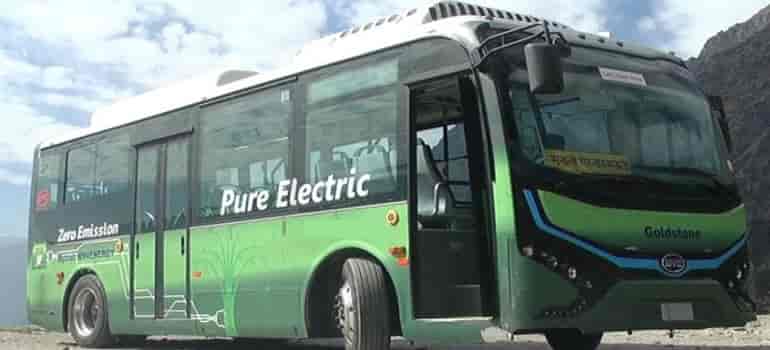
After the success of the Grand Challenge that helped discover the lowest-ever prices for electric buses (e-buses), Convergence Energy Services Limited (CESL), supported by World Resources Institute India (WRI India), kickstarted deliberations to expedite the deployment of 50,000 electric buses (e-buses) on Indian roads by 2030.
Under the Grand Challenge, CESL has begun the deployment of 5,450 e-buses across five cities: Bengaluru, Delhi, Hyderabad, Kolkata and Surat. This tender, based on a gross cost contracting (GCC) model, discovered rates that were 27% and 23% lower than those of diesel and compressed natural gas (CNG) buses respectively (without national subsidy).
NITI Aayog, the national think tank of India, has mandated CESL to scale up the scope of the Grand Challenge and leverage the benefits of demand aggregation to procure 50,000 e-buses over the next seven years. The Ministry of Road Transport and Highways (MoRTH) has also requested CESL to design a program for scrapping over 30,000 ageing buses across 25 states. Amidst an increasing thrust towards adopting low-carbon pathways for public transport, the discussion brought together all the stakeholders from the five cities to share their knowledge and experience from the Grand Challenge. The discussion saw government representatives, state transport departments, city bus agencies and other domain experts, reflecting on the learnings from the Grand Challenge to further streamline the adoption of 50,000 e-buses under the National Electric Bus Program.
The session highlighted various critical aspects of the required scale up including manufacturing capacity, charging infrastructure, grid management, capacity building of state transit agencies, financing instruments, risk mitigation and institutional remedies.
Mahua Acharya, Managing Director and Chief Executive Officer, CESL, commented, “The Grand Challenge tender is a sophisticated document – that has brought in transparency and homogenization of terms and conditions. With the success of the GCC model, the transit agencies are no longer required to worry about purchasing buses. With the new business model, they can simply purchase e-bus services as mobility-as-a-service (MaaS), – making the transit agencies better equipped to offer modern transit services while safeguarding themselves against risks of upfront costs, technology or performance.”
Sudhendu Sinha,Adviser (Infrastructure Connectivity – Transport and Electric Mobility), NITI Aayog,commented, “As India aspires to operationalize 50,000 e-buses for a faster transition to a zero-emission public transport system, we need to apply the learnings from the Grand Challenge that led to a first-of-its kind fall in e-bus prices. This endeavour should be coupled with a holistic capacity building strategy which would be the cornerstone of this transition.”
Pawan Mulukutla, Director- Integrated Transport & Electric Mobility, WRI India, said, “For e-buses to become the new normal, we need them to become more financially viable than their diesel counterparts. Knowledge and experience sharing from the Grand Challenge – which has set a new benchmark for e-bus procurement globally – will be critical in introducing more robust aggregated e-bus procurement frameworks in the future.”
In the Grand Challenge – the world’s largest tender for procurement of e-buses – the demand for e-buses was homogenized and aggregated across the five cities. Various streamlining and risk reduction measures helped boost the confidence of bidders, enhanced competition, and led to the record low prices of Rs.39.21/kilometer for 9-meter e-buses and Rs.43.49/kilometer for 12-meter low floor e-buses (including the cost of charging).


